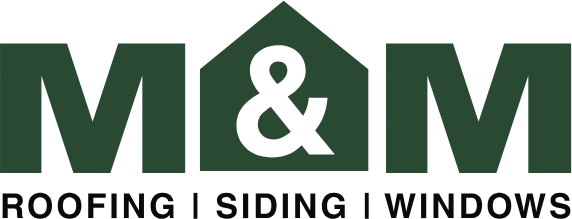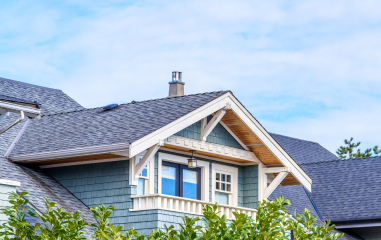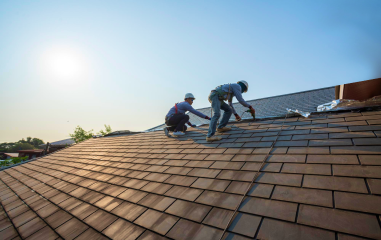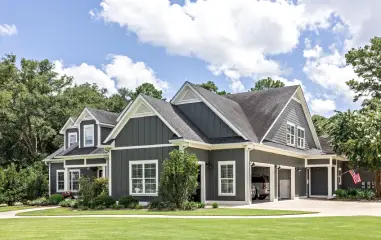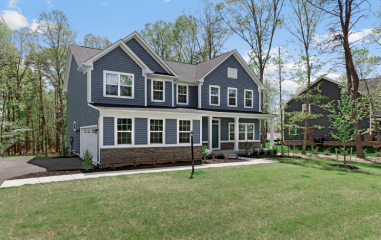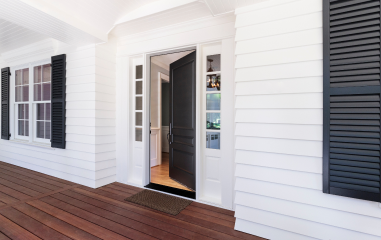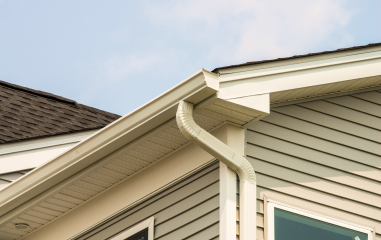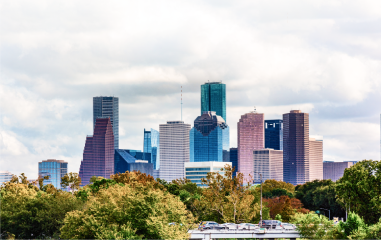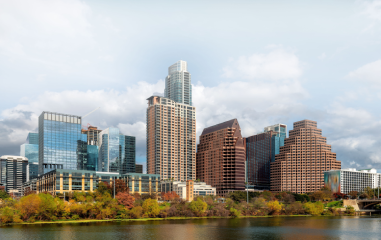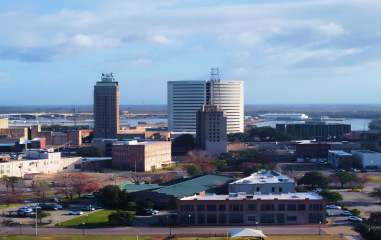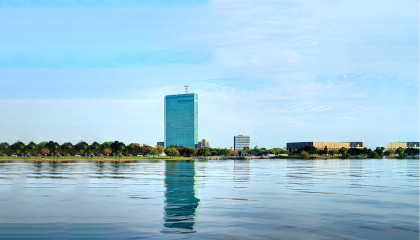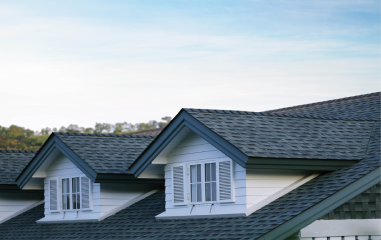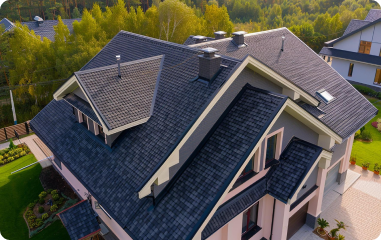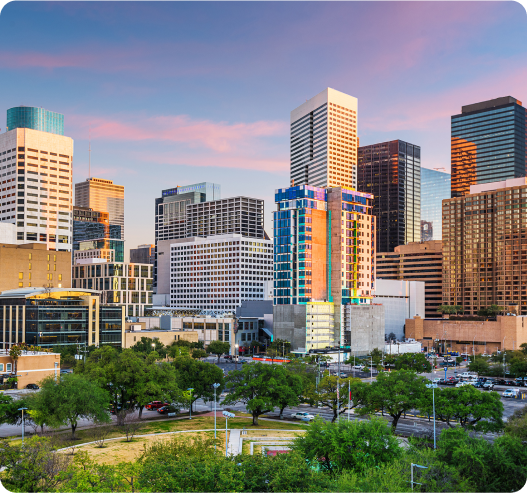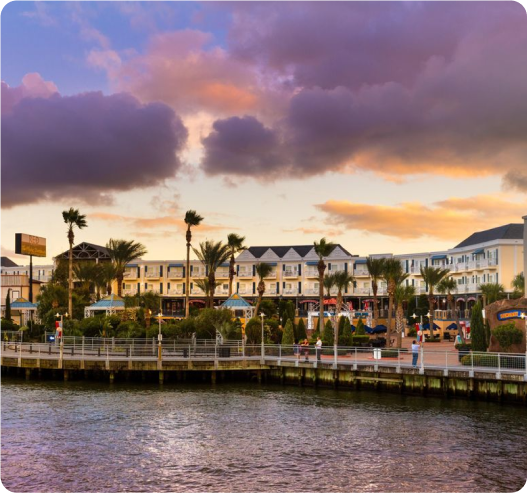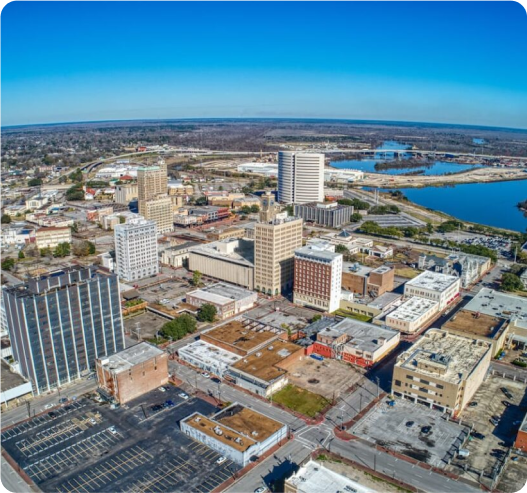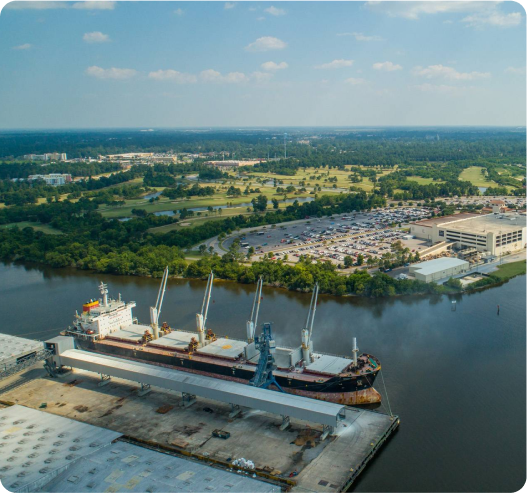Hiring a professional siding contractor is an excellent decision for anyone who wants to improve the exterior of their home. M&M Roofing, Siding & Windows has expert siding contractors who are knowledgeable about the different types of siding, benefits and downsides of each one, and installation. Their experience ensures that the job is completed quickly, efficiently, and with top-quality materials. Rest assured knowing that your new exterior will stand the test of time for years to come.
Types of Siding
James Hardie Siding
James Hardie siding, which is fiber cement siding, is one of the most popular choices for both new home construction and remodeling projects.
Pros of James Hardie Siding
- Durable
- Low maintenance
- Straightforward installation
Cons of James Hardie Siding
- Cost of materials and installation can be higher upfront
- Requires special tools and techniques for proper installation
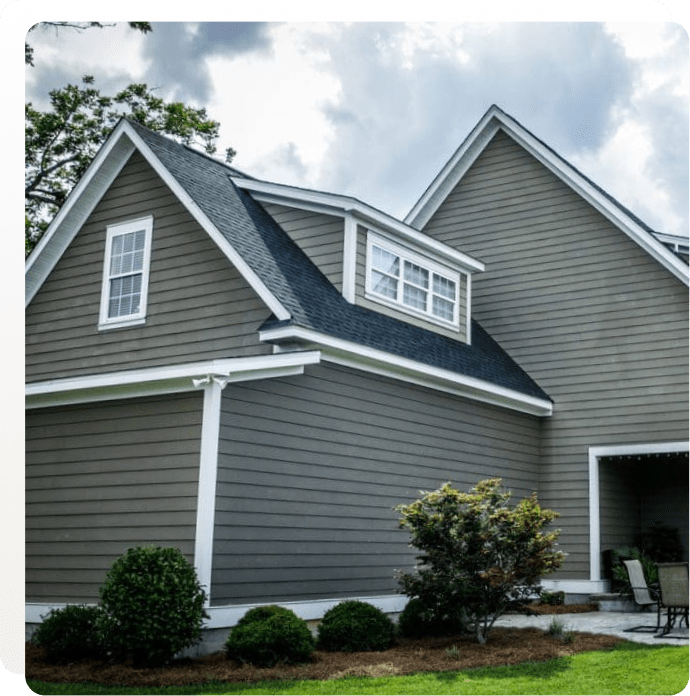
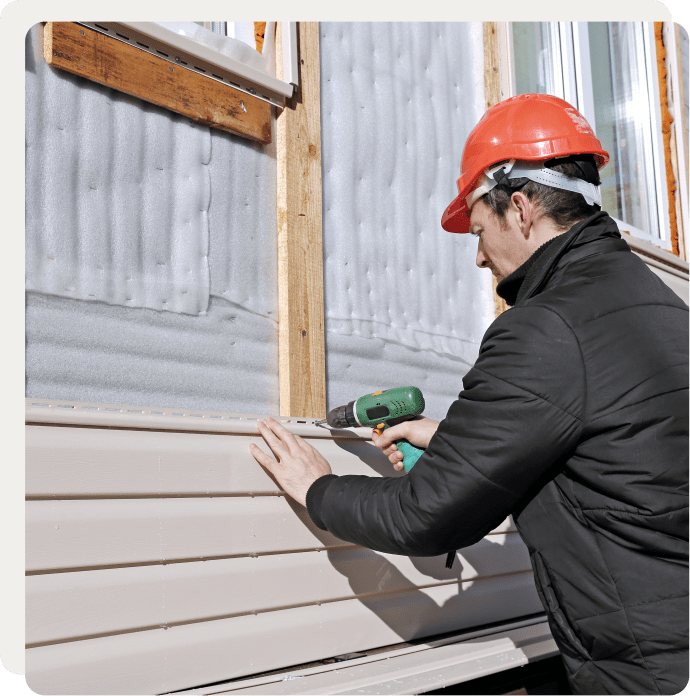
Vinyl Siding
Vinyl siding is another popular choice amongst homeowners.
Pros of Vinyl Siding
- Affordable
- Low maintenance requirements
- Never needs to be painted
- Durable
- Won’t rot, fade, or blister in hot sun
- Available in multiple colors
Cons of Vinyl Siding
- Can fade after long exposure to sun
- Might warp under extreme heat
- Difficult to match when repairs are needed
Wood Siding
Whether it’s the warm hue of cedar or the stately vibe of redwood, many homeowners choose the classic look of wood siding.
Pros of Wood Siding
- Natural, renewable, sustainable
- Provides excellent insulation
- Reduces overall energy consumption
- Aesthetically versatile
Cons of Wood Siding
- More expensive upfront than other types of siding
- Requires more maintenance such as regular painting/staining
- Susceptible to damage from pests and water
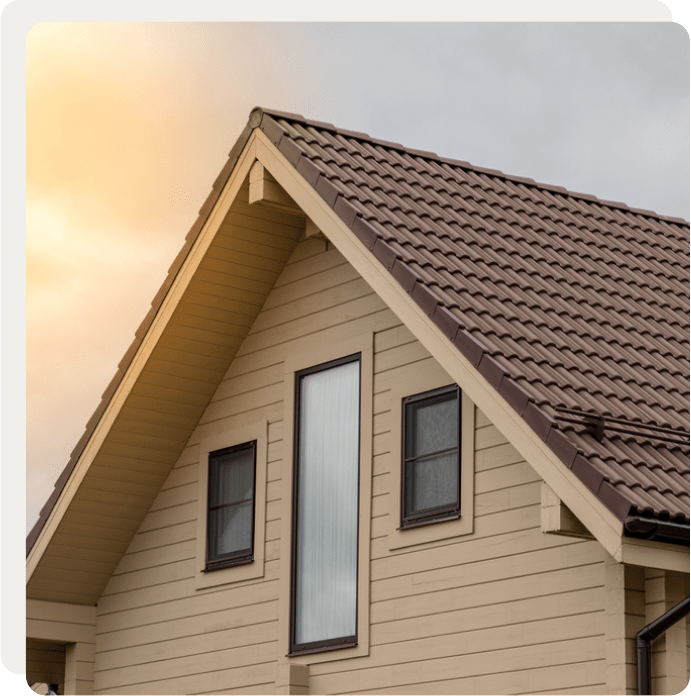
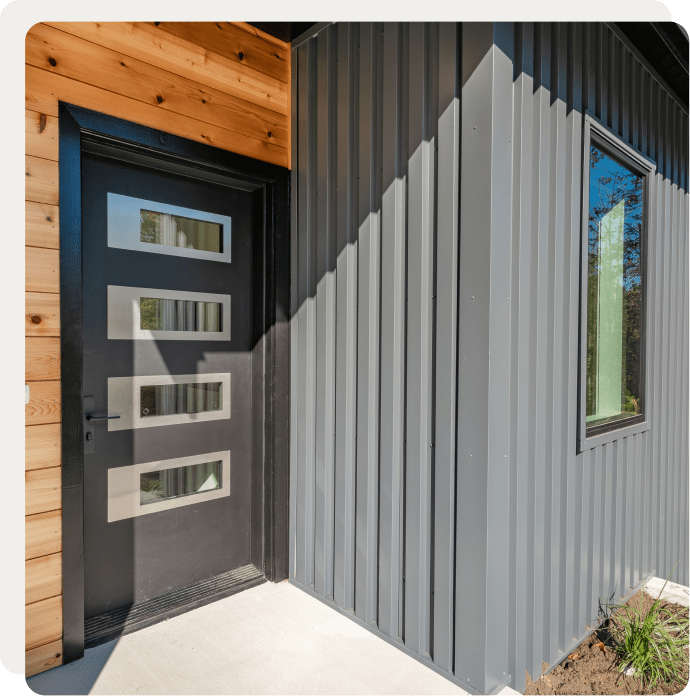
Metal/Aluminum Siding
Metal siding is a popular choice for both residential and commercial buildings.
Pros of Metal Siding
- Durable
- Cost-effective
- Low maintenance
- Various styles and colors
- Long-lasting
- Eco-friendly
- Insect resistant
- Suitable for various weather conditions
Cons of Metal Siding
- Susceptible to dents
- Prone to fading and chalking
- Might crack in extreme temperatures
Painting
Exterior Painting
We do exterior painting, too! We can paint your outer walls, trim, and any other exterior surfaces. We use high-quality paints and materials to provide a long-lasting and beautiful finish for any property. We also have the expertise to recommend the best colors and finishes that complement the style and architecture of the building.
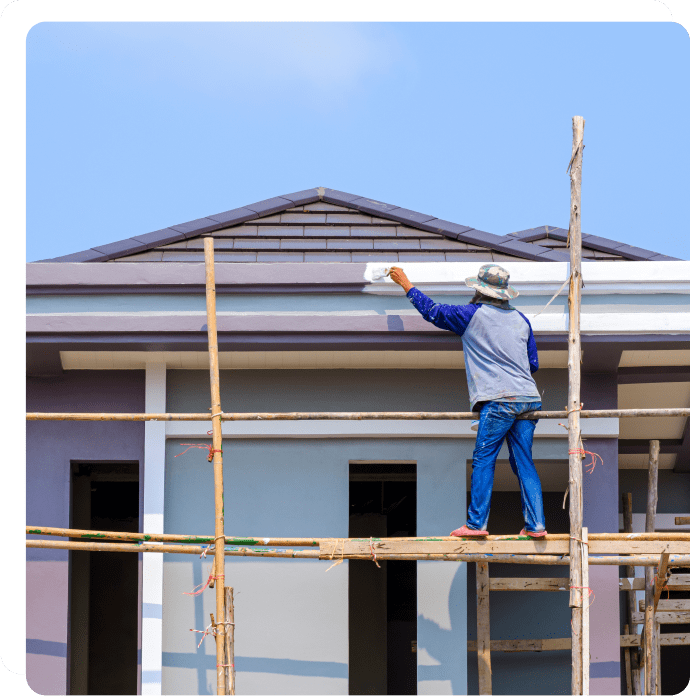
FAQ’s
Frequently Asked Questions
When undergoing a major renovation project, such as replacing the siding or roofing on your house, it’s best to start with the roof. This way you can ensure that any potential leaks or damage are fixed before the new siding is installed, preventing any possible issues with the siding.
When installing siding, it’s essential to maintain a gap between the siding and the roof. This gap allows for expansion and contraction of the siding due to temperature changes. The gap should not be wider than ¼ inch, and it should be filled with foam backer rod and sealant.
Yes. New siding can increase the value of your home by improving the aesthetic and appearance of your house, adding to its curb appeal. If you have recently replaced the siding on your house and are planning to sell, be sure to let your realtor know.
While it is possible to install it yourself, it is generally not recommended unless you have experience with this type of siding. James Hardie siding is heavy and can be difficult to work with, and improper installation can lead to issues like moisture penetration, warping, and cracking. To ensure that your James Hardie siding is installed correctly and to the best standard, it is advisable to work with a professional siding contractor.
It depends on several factors such as the quality of the materials used and the level of maintenance, but high-quality siding can last up to 50 years or more with proper care and maintenance.
The cost will vary depending on the type of wood used and the job complexity. Generally speaking, quality installation by a professional contractor can range from $5-$15 per square foot.
With proper installation and maintenance, aluminum siding can last up to 50 years, providing maximum protection against outdoor elements such as harsh weather, extreme temperatures, and UV radiation.
It’s not necessary to replace your roof and siding at the same time, but it’s advisable if the timing is right. This will save you money and time, as both jobs can be done simultaneously. It’ll also ensure that your home’s exterior looks consistent and has a uniform appearance.
The ideal time for siding installation is during spring or fall. In these seasons, the weather is typically mild, and the conditions are ideal for installing new siding. Contractors are often less busy during these periods, which increases the homeowner’s chances of receiving a better price quote.
It depends on the condition of the insulation and the homeowner’s preference. If the insulation is damaged or moldy, it may need to be replaced. However, if it’s in good condition, it can be reused. Our team will assess the insulation during the installation process to determine the best course of action.
James Hardie siding is known for its durability and longevity, and most of its products come with a 30-year warranty. With proper care and maintenance, your siding can last for decades.
The cost of vinyl siding will depend on several factors including the size of your home, the type of siding you choose, and the complexity of the installation. On average, the cost will range from $3-$7 per square foot for materials and installation.
Yes, when sourced responsibly from certified forests and installed properly with minimal environmental impact in mind (for example, using nontoxic stains), wood siding can be considered an eco-friendly choice for homes looking for green alternatives.
While aluminum siding is typically more expensive than vinyl, it’s still an affordable option for homeowners looking for a long-lasting, low-maintenance siding option that can provide energy savings over the lifetime of the siding.
